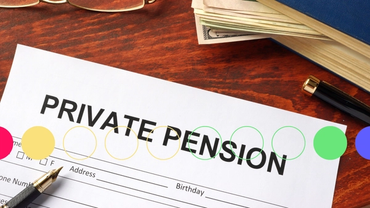Just Retired? 5 Essential Money Moves for a Secure Retirement
By Boring Money
30 May, 2025
You’ve made it. The alarm clock has been officially retired, the office chair left to gather dust, and your work emails are someone else’s problem now. Welcome to retirement - and with it, the slightly daunting realisation that you’re the one in charge of your paycheque now.

Your pension, savings, and any other income sources need to stretch across a retirement that could easily last 25–30 years. That means, for most of us, this is not the moment to wing it. Here are five smart, strategic steps to take when you’ve just retired.
1) Get a cash flow forecast
One of the best things you can do for your post-work life? Map out your finances year by year. A retirement cash flow forecast gives you a long-term view of how your money is expected to come in and go out.
Why does all this matter? Because your retirement spending is unlikely to be consistent. You’ll probably spend more in the early years - ticking off the bucket list, helping out the kids, or redoing the kitchen - before easing into a slower pace (and lower spend). Then, later in life, costs may rise again if you need care or support.
This pattern is often called a U-shaped retirement spending curve, and without a plan to manage this, it’s easy to overspend early on or underestimate the cost of later-life needs.
If Excel sends you running for the hills, a qualified financial adviser can build a detailed forecast using advanced cash flow modelling and analysis. Although it's always wise for those with large estates
or complex finances to get financial advice, cash flow forecasts aren't just for the wealthy and can help anyone in the run-up to retirement understand their income needs and plan accordingly.Cash flow planning is critical in helping the client understand how best to utilise their accumulated wealth to meet their retirement objectives. It also helps to identify the investment return required, and by extension, the investment risk level needed to ensure the risk of running out of money in retirement is minimised. Cash flow planning is instrumental in helping the client ‘visualise’ retirement planning advice.
2) Review and rebalance your investments
Even in retirement, your investments have a job to do - mainly, providing income and growing your wealth at a sensible pace.
The starting point is to identify how much income you really need, and ensure you’ve got a safe, reliable way to generate it. For most people, that will include the State Pension, which currently pays £230.25 per week (or £11,973 per year) if you’re entitled to the full amount.
But unless you’re planning a very(!) frugal retirement, you’ll probably need to top this up. That’s where your workplace and/or personal pension and other investments come in to supplement your income. The exact make-up of your portfolio
might need to be different depending on your unique needs and goals, but may include the following:3) Check your Inheritance Tax status
Inheritance Tax (IHT) is often overlooked, but this most-hated tax can be a nasty - and costly - surprise for your loved ones. And more families than ever before are in the firing line.
HMRC recorded IHT receipts of £780 million in April 2025, the second highest monthly total ever recorded, and a record £8.2 billion across the 2024-25 tax year.[1] The OBR estimates increasing house prices, rule changes and years of allowance freezes could bring as much as 10% of all UK estates into the IHT net by the end of the decade.[2]
Currently, the standard nil-rate band is £325,000, and the residence nil-rate band (RNRB) adds an additional £175,000 when leaving your home to direct descendants. That gives a combined tax-free allowance of £500,000 per person (or £1 million for married couples/civil partners). Everything above that? A painful 40% tax on your estate.
Right now, pensions are a huge advantage in estate planning. They're not counted as part of your estate, so can be passed on tax-free if you die before age 75 (with Income Tax charged to beneficiaries if you die after 75). But from April 2027, things change:
If you’ve been holding off on pension withdrawals to minimise IHT, now’s the time to rethink that strategy. It may be more tax-efficient to start strategic drawdowns now, rather than leaving a large untouched pot that becomes IHT-liable in just a couple of years.
The bottom line is that IHT planning can be pretty technical, so make sure to read up on the details. Many people also find that having a financial adviser to help them do the number-crunching is a worthwhile venture.
4) Consider your 25% tax-free lump sum
Most UK pension schemes allow you to take 25% of your retirement savings tax-free. But should you take it?
Deciding whether (and how) to take your lump sum used to be a more straightforward process, but with the 2027 pension IHT change on the horizon, it's an increasingly complicated and important choice.
Remember, you don’t have to take the whole 25% in one go - you can take it in smaller chunks, which can help you avoid increasing your Income Tax liability, and plan out a more consistent income stream over a longer time period.
Once again, a financial adviser is the one to turn to if you’re not sure that taking a lump sum makes sense for you. They can fully assess your finances and help you to decide if it’s an appropriate decision, or if the tax implications aren’t worth it.
5) Build your plan B (just in case)
Even with the best-laid retirement plan, life throws curveballs. Think of this as your retirement emergency plan. You might never need it, but knowing it's there can offer peace of mind.
Having options gives you control. And you may find that a bit of extra work or side income helps keep you feeling engaged and financially secure, especially if markets or costs suddenly take a turn for the worse.
Final thoughts
The early years of retirement can be some of your most exciting, but also the most financially pivotal. The choices you make now about pension withdrawals, investments, and estate planning will shape your financial security for the decades ahead.
So take stock, stay informed, and don’t be afraid to bring in an expert to help. After all, you worked hard for this - the last thing you want is for poor planning or new tax rules to undo a lifetime of efforts.
---







